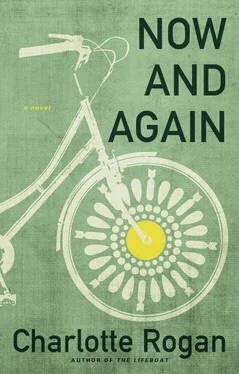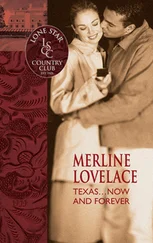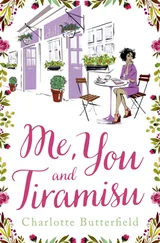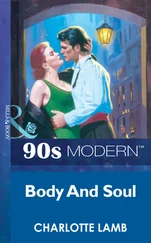“Of course not, Tomás. Who could forget you!”
“My family, that’s who. They live in Arizona, but I was transferred here.”
“I assume there was a good reason for that,” said Maggie.
“What is it? What’s the reason?”
“I don’t know anything about it,” said Maggie. “But people usually have a reason for doing things. Just like there’s a reason you’re in prison in the first place.”
“But I didn’t do anything,” said Tomás. “You believe that, don’t you?”
“I honestly don’t think about it. Besides, it doesn’t matter what I believe.”
“Why not? Why doesn’t it matter?”
“Because I don’t know the facts of the case and because I’m not in a position of authority.”
“If it doesn’t matter to you that I’m innocent, why would it matter to anyone? Why wouldn’t it be okay to lock up anybody for any reason, just because you wanted to?”
“But I don’t want to,” said Maggie. “Why would you think I’d want a thing like that?”
“Because…” Tomás peered at Maggie as if she was supposed to guess, but she had no idea what he was thinking.
“I would never want that,” she said. “Now, here’s one I’ll bet you can’t solve.” She wrote out a problem involving complex fractions.
“Yes, you can write in the book!” she cried when Tomás’s pencil hovered indecisively. “You see? It has your name on it — right there! Every time you come, this very same book will be yours!”
Maggie hurried across the room to erase the whiteboard, to file the attendance form, to turn on one bank of overhead lights and turn off another. One of the other inmates called out, “Over here, Miss. I have a question too!”
The men scraped their pencils against the paper. A man with a scarred face blew his nose against his arm and then wiped it on the seat of his pants. Maggie straightened the stack of notebooks belonging to the Tuesday class before glancing back to where Tomás was sitting, toiling away over his workbook, writing as neatly as he could. “Good job!” she exclaimed when she circled back to check his answers. “Four out of five correct!”
She was glad when the class was over, but the idea of innocence stayed with her. The next day she asked Valerie, “Does it ever occur to you that some of the inmates are innocent?”
“It occurs to everyone, darling. I was wondering when you were going to ask.”
“What do you do about it?”
“I said it occurs to everyone. I didn’t say they were innocent. In most cases, they’re guilty of more than what came out at their trials.”
“But most of them didn’t have trials,” said Maggie, who had started to research the criminal justice system and been shocked by what she had found. “Did you know—” she started to say, but Valerie cut her off.
“I know, I know. And if you kiss them, they turn into princes.”
“Maybe someone should kiss them then.”
“They’re guilty,” said Valerie. “Hand on heart. I wouldn’t lie.”
“But isn’t believing you without question the same thing as believing the inmates without question? Or believing…well, believing anything without looking into it for yourself?”
“That’s a little too close to the deep end for me,” said Valerie. “My motto is to keep it simple. Besides, the police don’t go around arresting people willy-nilly. Someone would have to be awful unlucky to end up here if he was innocent.”
“Yes,” said Maggie. “Someone would.”
Maggie thought of luck as a giant primordial atom that had fractured the day God made the world, unleashing particles of good and bad luck into the atmosphere where they could rain down at random, and now it occurred to her that she was sitting at a desk on the outside of the bars rather than wasting away inside of them not because she was inherently more virtuous than other people, but because she was luckier.
“Do you know why they arrested me?” asked Tomás when Maggie saw him in class the next Wednesday.
“Why no, I don’t,” replied Maggie.
“Because I ran from the police.”
“What were you running for?”
“To get away from them.”
“But why? If you hadn’t done anything, why didn’t you just say so?”
“Because…” Again Tomás peered at Maggie as if she could read his mind.
“And why did you plead guilty if you were innocent?”
“I had to plead guilty. If I didn’t, I might have gotten life.”
3.5 Lyle
It was Lyle’s belief that bombs prevented bloodshed, and now that Will was backing him up, he felt more sure of it than ever. “I know that sounds like a contradiction,” he said to a co-worker named Jimmy Sweets, “but if you think about it…” His voice trailed off, not because the explanation was hard to find, but because it was obvious. If anyone would know what he was talking about, it was Jimmy, who had been a fighter pilot in Vietnam.
“We pretty much proved that in nineteen forty-five,” said Jimmy. He rolled up his sleeve to reveal a long scar. “Christmas in Hanoi,” he said.
When some metal filings flew off a carelessly operated lathe and embedded themselves in Lyle’s left biceps, he thought of it as a war wound. “I have shrapnel in my arm,” he would say after a beer or two at the Merry Maid, which is where some of the men hung out in the evenings and where Lyle had started to go with Jimmy whenever Maggie worked late or when he wanted to get away from the creeping suspicion that he and Maggie were growing apart and that the new arrangement had left him without a necessary piece of equipment, like a leg.
Jimmy and Lyle thought alike about a lot of things. “What would happen if they turned around to reload their guns, and presto! the ammo was gone,” said Jimmy. “Just frigging gone. That’s what we do. We replenish the ammo pile.”
A Merry Maid regular named Lily De Luca pushed her prom queen hair back over her shoulder to expose the fullness of her pink sweater and said, “Heck, people can convince themselves of all kinds of things.”
Lily worked as a bookkeeper at McKnight’s Chicken Farm, and despite the tight pink sweater and her breathy renditions of “Desperado,” she thought of herself as one of the guys.
“We’re not convincing ourselves, Lily,” said Jimmy.
“Become convinced, then,” said Lily. “People can become convinced.”
“We didn’t become convinced. You make it sound as if we sit around waiting for opinions to fly in and out of our heads. We always thought this way, didn’t we Lyle?”
“Yeah,” said Lily. “You were born knowing — a real know-it-all.”
“We looked at the facts and assessed them. Or is that a concept that’s too advanced for people who work with chickens all day?”
“Notice that it’s the hens that are useful,” said Lily. “Do you know what happens to the cocks?”
“I know what happens to one of them,” said Jimmy, but Lily ignored him.
“At egg farms, anyway, the roosters are suffocated or ground up live because they’re not useful. Not a use for them in the world.”
The two went on in that fashion for a while, but Lyle was happy just to sit and soak up the atmosphere: the polished bar, the crazed mirror in which he could see his new aviator glasses pushed up on top of his head, the television screen showing a mild-mannered weapons inspector getting drowned out by the talk show host, the smell of old beer, Lily’s gravelly voice, and the row of regulars with drooping, bloodshot eyes. It was a new world for Lyle, who had gone straight from camping out at the Sterlings’ dinner table to being married to Maggie. He had never been in the thick of it before, and suddenly, here he was, going mano a mano with people in a bar. Maybe he wasn’t missing a leg after all, or maybe it was growing back.
Читать дальше












